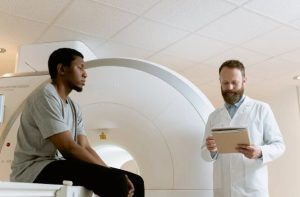The field of healthcare has witnessed remarkable advancements over the years, with biomedical scans or biomed scans playing a pivotal role in revolutionizing the way we understand and manage our well-being. From their humble beginnings to the sophisticated technologies of today, biomedical scans have become indispensable tools in disease diagnosis, treatment planning, and medical research.
Evolution of Biomedical Scans
Biomedical scans have come a long way since their inception. In the early days, simple X-rays provided a glimpse into the human body’s internal structures. However, technological progress has paved the way for more advanced imaging techniques, including Magnetic Resonance Imaging (MRI), Computed Tomography (CT) scans, and Positron Emission Tomography (PET) scans.
Types of Biomedical Scans
Each type of biomedical scan serves a unique purpose. MRI excels in producing detailed images of soft tissues, while CT scans offer cross-sectional views of bones and organs. PET scans, on the other hand, provide insights into metabolic processes, aiding in the detection of abnormalities. The synergy of these technologies has significantly enhanced the precision of medical diagnoses.
Applications in Disease Diagnosis
One of the most notable contributions of biomedical scans is in the early detection of diseases. The ability to visualize internal structures with high clarity has proven crucial in identifying cancerous tumors, allowing for prompt intervention. Moreover, biomedical scans play a crucial role in diagnosing neurological disorders, providing valuable insights into conditions like Alzheimer’s and Parkinson’s disease.
Precision Medicine and Personalized Treatment
The information derived from biomedical scans is instrumental in tailoring treatment plans for individuals. Precision medicine, a revolutionary approach, leverages scan results to customize therapies, maximizing efficacy and minimizing side effects. This personalized approach marks a significant leap forward in improving patient outcomes and overall healthcare quality.
Real-Time Monitoring of Health Conditions
Biomedical scans enable real-time monitoring of chronic illnesses. Continuous surveillance empowers healthcare professionals to intervene promptly in case of any anomalies, preventing exacerbation of conditions. This proactive approach aligns with the shift towards preventive healthcare, emphasizing the importance of early detection.
Challenges and Criticisms
Despite their undeniable benefits, biomedical scans face challenges and criticisms. Concerns about radiation exposure, especially in the case of CT scans, raise questions about long-term effects. Additionally, issues related to accessibility and cost hinder the widespread adoption of these technologies, limiting their impact on certain demographics.
Biomedical Scans in Research and Innovation
Biomedical scans contribute significantly to medical research and innovation. The detailed images produced aid researchers in understanding disease mechanisms, facilitating breakthroughs in drug development and treatment modalities. The synergy between biomedical imaging and artificial intelligence further accelerates progress in the medical field.
Impact on Healthcare Accessibility
The impact of biomedical scans extends beyond traditional healthcare settings. Rural areas, often underserved, benefit from mobile imaging units equipped with advanced scanning technologies. Telemedicine, bolstered by the capabilities of biomedical scans, enables remote diagnosis and consultation, bridging the gap in healthcare accessibility.
Future Trends and Innovations
The future of biomedical scans holds exciting prospects. Emerging technologies, such as 3D imaging and molecular imaging, promise even greater precision and diagnostic capabilities. Integration with artificial intelligence is set to revolutionize the interpretation of scan results, providing faster and more accurate diagnoses.
Ethical Considerations in Biomedical Scans
As we celebrate the advancements in biomedical scans, ethical considerations demand attention. Issues surrounding patient consent, privacy, and the responsible use of sensitive health data necessitate careful deliberation. Striking a balance between the benefits of scans and the ethical implications ensures the responsible integration of these technologies into healthcare practices.
Patient Experiences and Testimonials
Real-life stories serve as powerful testimonials to the impact of biomedical scans on individual health journeys. Countless individuals have benefited from early diagnosis and personalized treatment plans, highlighting the life-changing potential of these imaging technologies.
Global Adoption and Awareness
While biomedical scans are more prevalent in developed regions, efforts to raise awareness and promote their adoption globally are underway. Collaborative initiatives between healthcare organizations and governments aim to disseminate knowledge and equip healthcare professionals worldwide with the necessary tools for effective diagnosis and treatment.
Educational Initiatives for Healthcare Professionals
Keeping pace with the rapid advancements in biomedical imaging requires continuous education for healthcare professionals. Specialized training programs ensure that medical practitioners stay updated on the latest technologies, enhancing their ability to leverage these tools for improved patient care.
Also read: Unleashing the Benefits of Cutting-Edge Healthcare
Conclusion
In conclusion, biomedical scans stand as a testament to the transformative power of technology in healthcare. From early disease detection to personalized treatment plans, the impact of these scans on our well-being is profound. While challenges persist, ongoing research and ethical considerations will shape the future of biomedical imaging, promising even greater strides in enhancing global healthcare.

